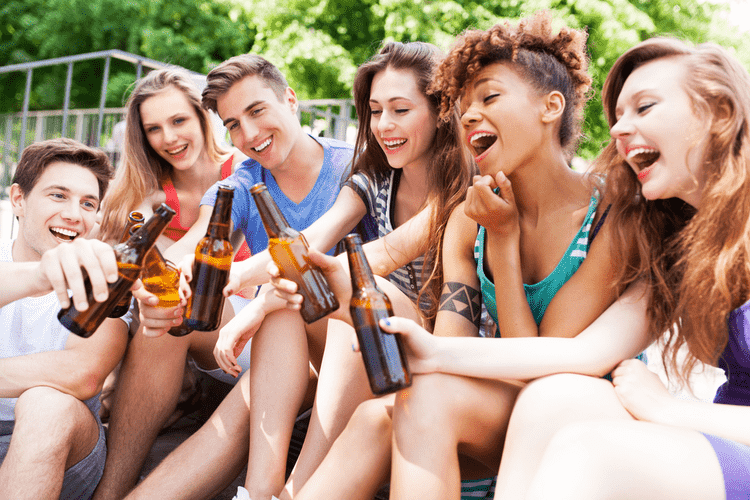60 percent were light or regular drinkers, while 40 percent reported drinking no alcohol. Over the course of the study 41 percent of the women became overweight or obese, but the nondrinkers were the ones who ended up gaining more weight. Meanwhile, the risk of becoming overweight was 30 percent lower for women who limited themselves to one or two alcoholic beverages a day. “If you enjoy a moderate amount of alcohol and it is something that is important to you, I don’t recommend restricting yourself to try to lose weight,” she says. National Longitudinal Study of Adolescent to Adult Health from people when they were in their late teens and early twenties and again when they were in their mid- to late-twenties and early thirties.
Many people have successfully overcome alcohol withdrawal, and you can too. With the right support and resources, you can get through this. All of these factors work together to influence your behaviors, the number of calories that you ingest and how you burn these calories. Cains, Sarah; et al. “Agrp neuron activity is required for alcohol-induced overeating.” Nature Communications, January 10, 2017. It affects the brain’s communication pathways, and the way the brain looks and works.
Alcohol can negatively affect your sleep
If your goal is to be able to still drink and get skinny, then you’re going to need to pick the healthiest alcoholic beverages. If consuming alcohol in the evening, do so at least 3 hours before going to bed. This will allow your body enough time to metabolize the alcohol properly.

Still, an estimated 42% of Americans are obese, and 60% of Americans say they drink alcohol. Now, not all Americans who drink alcohol https://ecosoberhouse.com/ are obese, and not all obese Americans drink. This leads to decreased digestive secretions and movement of food through the tract.
Alcohol Abuse and Bowel Movements
However, there isn’t a gene that directly causes alcohol abuse or addiction. Environmental and social factors also play a significant role in determining the outcome. The terms “genetic” and “hereditary” are largely interchangeable when discussing alcohol addiction. Genetic factors refer to a person’s DNA and genes passed down from parents to children. Heredity, on the other hand, refers to the transmission of mutated genes across generations. When it comes to alcohol abuse, both genetic and environmental factors contribute to a person’s risk level.
The best time to get help to stop drinking is when you realize you have a problem. This can include learning you meet the criteria for heavy or binge drinking or that alcohol is causing negative consequences. So what should you do about alcohol consumption https://ecosoberhouse.com/article/can-you-gain-weight-because-of-alcohol/ while on a diet? A common-sense approach is to drink very moderately, if consuming a very small amount of alcohol will make staying on the diet easier. And exercise might compensate for the extra calories so weight loss won’t be slowed.
How Alcohol Can Affect Weight and Body Composition
The disruptions can change behavior and mood, making it harder to move with coordination and think clearly. Sleep deprivation, whether from lack of sleep or impaired sleep, can lead to an imbalance in the hormones related to hunger, satiety, and energy storage. Plus, lower testosterone levels may affect quality of sleep, especially in older men. This inability to speed up Mother Nature is the prime reason why the above factors are so powerful, and why their effects persist for a long time.
The alcohol calories (like the cost of the cocktails) would be added to the total calories from the meal. Add all of this together and it’s easy to see how drinking heavily can cause you to gain weight over time. That doesn’t mean you have to totally swear off alcohol if you want to lose weight—you just need to be smart about drinking.
For example, Simon says that alcohol can affect levels of reproductive hormones like testosterone and estrogen. That can make it easy to inadvertently consume more calories than you need. Despite containing a lot of energy, alcohol also doesn’t have the same satiating effect as solid food.








